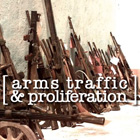
|
|||||||
|
WHISTLEBLOWER FMR FBI AGENT SAYS CORRUPT US OFFICIALS MAY HAVE LET NUCLEAR SECRETS GO TO TERRORISTS
SIBEL EDMONDS TELLS SUNDAY TIMES INDIVIDUALS IN HIGH U.S. GOV'T POSITIONS TOOK MONEY IN EXCHANGE FOR NUCLEAR SECRETS 9 January 2008 Sibel Edmonds was a translator at the FBI when she overheard, in taped wiretaps, conversations that involved US officials at high levels organizing and taking bribes in exchange for dealing nuclear secrets to the black market. The Sunday Times, a London-based Rupert Murdoch-owned newspaper, has now broken the story, after years of Edmonds being turned away by the US press, due to an unprecedented "state secrets privilege" gag order. The world press is taking note, while US media outlets continue to keep quiet or not investigate. [Full Story] UK TREASURY TO CLOSE ARMS SALES OFFICE ACCUSED OF CORRUPTION The British Treasury department has announced plans to close the government's controversial office for arms sales, amid allegations of corruption in dealings with foreign governments and fears of proliferation. According to the Guardian, "The 450-strong defence export services organisation (Deso), based near Oxford Street in London, has long been the target of anti-corruption campaigners and opponents of the arms trade." [Full Story] NORTH KOREAN DENUCLEARIZATION COULD LEAD TO LASTING PEACE Reuters and the Wall Street Journal are reporting that US negotiations to achieve the de-nuclearization of North Korea may also lead to talks to officially end the 1950-1953 Korean war, which has been officially in a state of truce (at times fragile) since 1953. State Dept. negotiator Christopher Hill has said the 6-party regional talks could become comprehensive peace talks, with the aim of declaring an official end to the war by year's end. [Full Story] NORTH KOREA PROMISES IT WILL DISMANTLE ITS NUCLEAR WEAPONS PROGRAM Amid skepticism as 6-nation talks to resume, in negotiations with the South, North Korea's authoritarian regime has renewed its promise to dismantle its nuclear weapons program. The AP reports "Kim Yong Nam said 'the denuclearization of the Korean peninsula is the dying wish' of the country's founding president, Kim Il Sung... [Full Story] UK AUTHORITIES FIND SIGNIFICANT QUANTITY OF POLONIUM-210 IN CLOSE CONTACT OF MURDERED SPY, LITVINENKO Investigators in the UK have said they found a "significant quantity" of Polonium-210, the intensely radioactive isotope that killed former Russian spy Alexandr Litvinenko, in the body of a close associate of the victim. The discovery raises fears about wider contamination and the possibility that others may have been targetted. [Full Story] SCIENTISTS SAY LITVINENKO POLONIUM POISONING BEARS HALLMARKS OF SOPHISTICATED STATE OPERATION When former Soviet spy, Alexandr Litvinenko accused the Russian state, under Vladimir Putin, of organizing his murder, the diplomatic community was faced with a possibly explosive situation. Now scientists in the United Kingdom are saying the polonium-210 isotope found in Litvinenko's system suggests a level of sophistication that would require not only state sponsorship, but likely military cooperation. [Full Story] UN SMALL ARMS CONFERENCE SEEKS GLOBAL REGULATIONS The United Nations conference on light weapons proliferation is facing a burgeoning black market trade which spreads new and used small arms around the globe, fueling civil wars and organized crime. Recent months have seen a number of reports urging governments to tackle the problem; in May, the rights group Amnesty International reported the illicit trade was "out of control", fueled by an "opaque chain" of private interests. [Full Story] UGANDA TO DESTROY 57,000 WEAPONS The nation of Uganda is taking important steps toward reducing the risk of regional arms poliferation, by destroying a stockpile of old and out-of-use weapons and weapons seized from illegal sources. The move is part of Uganda's pledge to the 2004 Nairobi Protocol, which required signatory nations of Africa's Great Lakes region to reduce the threat of proliferation of light arms across borders, to the peril of civilian populations and political stability. [Full Story] AMNESTY REPORTS INTERNATIONAL ARMS TRADE 'OUT OF CONTROL' Amnesty International has published a new report examining the international arms trade, and its findings indicate there is little control on the expanding web of private interests seeking to profit from a proliferation of dangerous weapons. The report also illustrates the ways in which this scattering of dangerous weapons has lead to severe human rights abuses. [Full Story] PLANS MAY ALREADY BE UNDERWAY FOR IRAN STRIKE The New Yorker magazine has published a story by investigative reporter Seymour Hersh —who also uncovered the My Lai massacre in Vietnam and information leading to the revelations about Abu Ghraib— which cites sources with links to the Pentagon and to US intelligence as saying the Bush administration may already have plans to target Iran's nuclear research facilities with "tactical nuclear weapons", i.e. 'low-yield' bombs with radioactive fuel but massive destructive capability. [Full Story] 4 MILLION KILLED IN DEMOCRATIC REPUBLIC OF CONGO SINCE 1998 Ongoing armed conflict in the Democratic Republic of Congo has taken an estimated 4 million lives since 1998. Estimates range from attributing 2 to 4 million deaths to the 5 year war, to placing 3 million during the war and 1 to 2 million more in fractious post-conflict unrest and deprivation. The Lancet reports 36,000 people per month are still dying from armed conflict, criminal violence, disease and malnutrition. [Full Story] NO BUTTON TO PUSH, THANKFULLY It has been said in recent decades that leaders of nuclear-armed states have a "finger on the button". It is an alarming yet somewhat convenient concept, but it has not generally been all that accurate. It turns out, the push-button solution may be of rhetorical use, but it was never a real option in nuclear confrontation, and it cannot formulate a satisfactory outcome in resolution of difficult conflicts in a world of contingencies. [Full Story] 'TREE OF LIFE' MAKES USED WEAPONS INTO SIGN OF HOPE In the wake of Mozambique's long civil war, lasting from 1976 to 1992, a group of artists set up the Transforming Arms into Tools project in the nation's capital, Maputo. Sculptors use decomissioned weapons, and parts of weapons to make art, expressing the possibility of finding new ways to secure and advance civil society. [Full Story] DEPLETED URANIUM WILL POLLUTE IRAQ FOR 4.5 BILLION YEARS The President of the Nuclear Policy Research Institute has called for a comprehensive cleanup initiative in Iraq, aimed at reducing the danger posed by Depleted Uranium, left over from artillery shells launched against Basra, Baghdad and other Iraqi cities. According to Dr. Helen Caldicott, founder of the NPRI, Uranium 238, the radioactive isotope present in Depleted Uranium, has a half-life of 4.5 billion years. That means that the level of radioactivity of the molecules in a mass of Depleted Uranium will be halved only after 4.5 billion years. This means that land contaminated with DU spilled from exploding artillery shells, used by the US military against enemy tanks, artillery depots and fortifications, will still be radioactive and uninhabitable 4.5 billion years from now. [Full Story] NO WMD, JUSTIFICATIONS FOR WAR IN QUESTION David Kay, chief weapons inspector for the Iraq Survey Group, who recently left his post, reports there was no evidence to indicate the presence of any weapons of mass destruction, any stockpiles, or any competent programs to develop such weapons. Kay said evidence was found that indicated there had been programs in the past, but that it appeared that all the weapons had been destroyed, and that the programs were in disarray, and no production facilities existed. He said his research was significantly complicated by post-war security lapses, which allowed looting of government facilities, including military and industrial sites. [Full Story] BRAZIL'S NUCLEAR QUESTION Brazil has announced that it intends to be one of the nations producing enriched uranium, a nuclear fuel, and that it plans to export the product as an energy resource. The Brazilian government says it has no WMD aspirations and that the program is entirely peaceful, driven by economic opportunity. Brazil has the world's sixth largest uranium deposits, and says it would produce enriched uranium far short of "weapons grade". [Full Story] NGOs MOVE AGAINST CLUSTER BOMBS Cluster bombs are controversial munitions, designed to explode outward from a central point, creating multiple explosions and dispersing shrapnel over a wide area. Many believe the technology itself effectively increases the risk of any bombing campaign to civilians and should therefore be banned. The aim of this campaign is to fully realize the basic human rights inherent in the Geneva Conventions and the Universal Declaration of Human Rights, including the right of civilians not to be targeted by military attacks, directly or peripherally. [Full Story] CONGOLESE CHILD SOLDIERS DISARMED The UN reports that over 400 child soldiers were "demobilized" in the Eastern Congo, a region still plagued by instability and deprivation. The child rebels were offered humanitarian and food aid in exchange for their weapons, setting what might be an example for other such missions. [Full Story] |
||||||
|
|||||||

